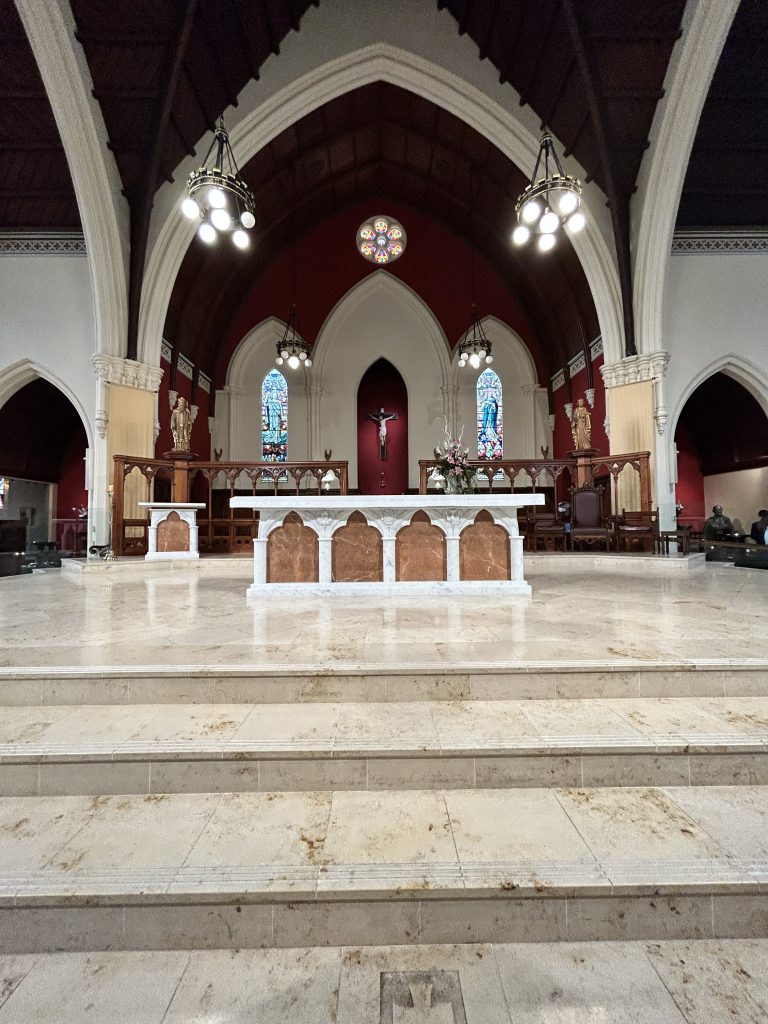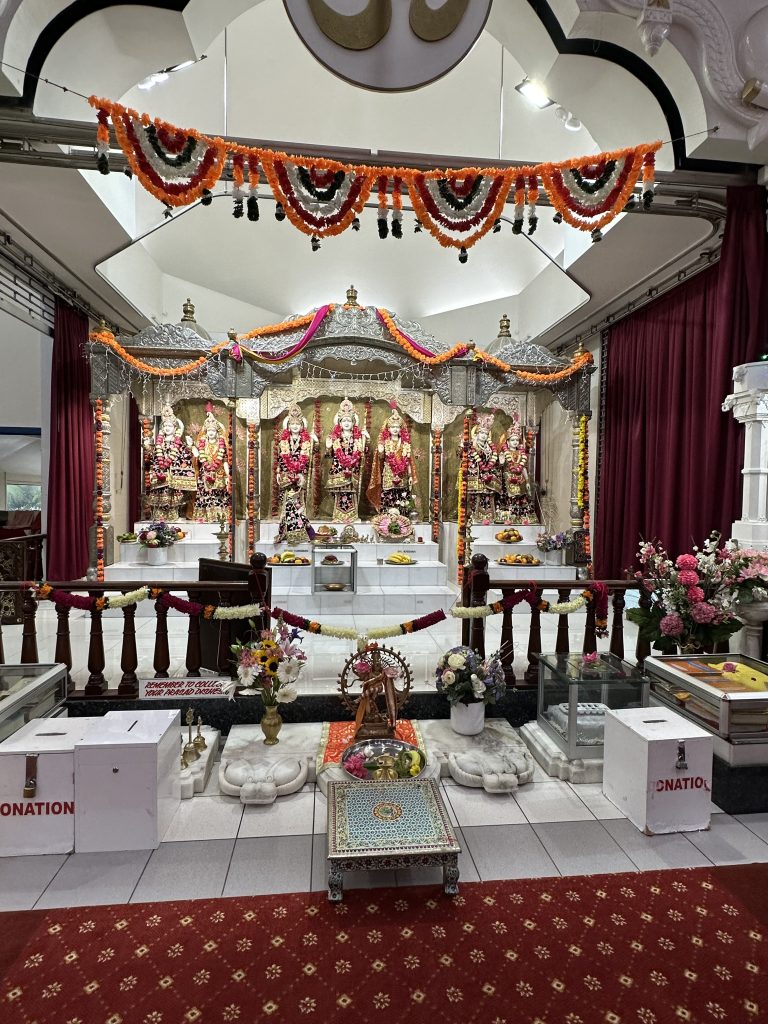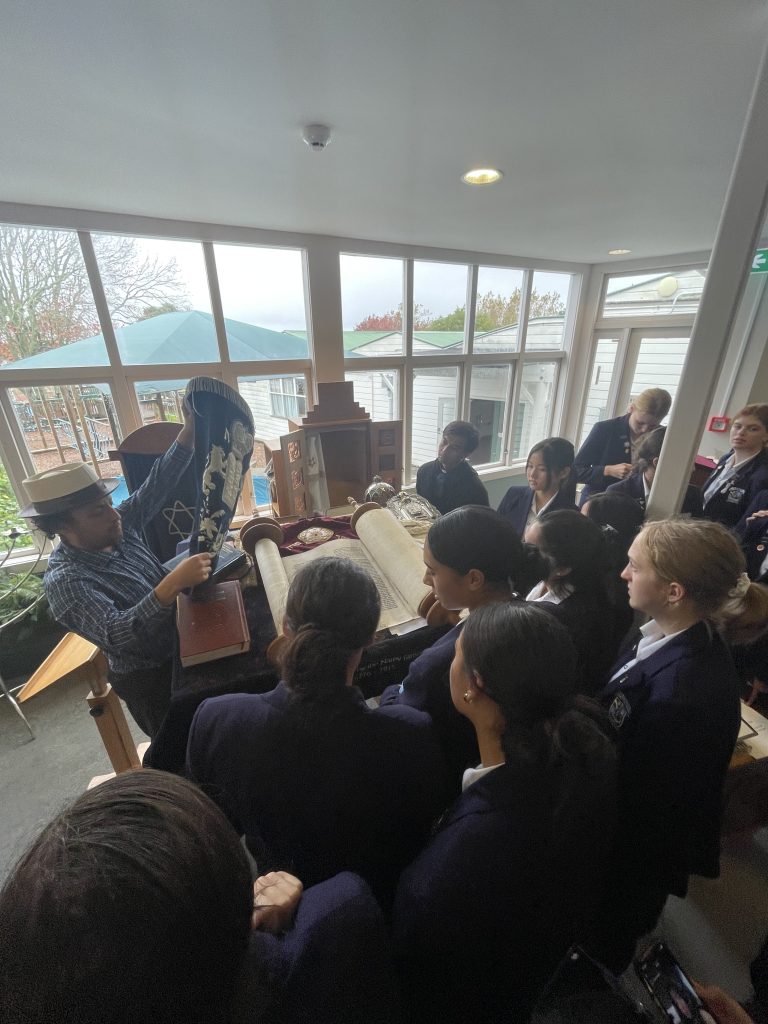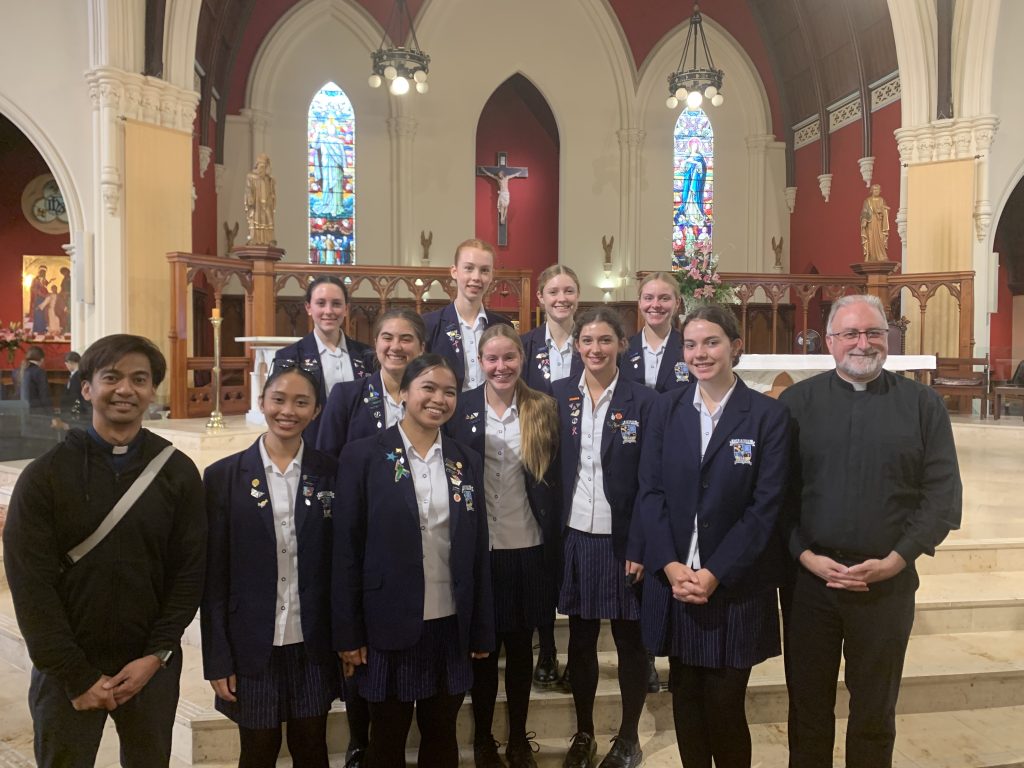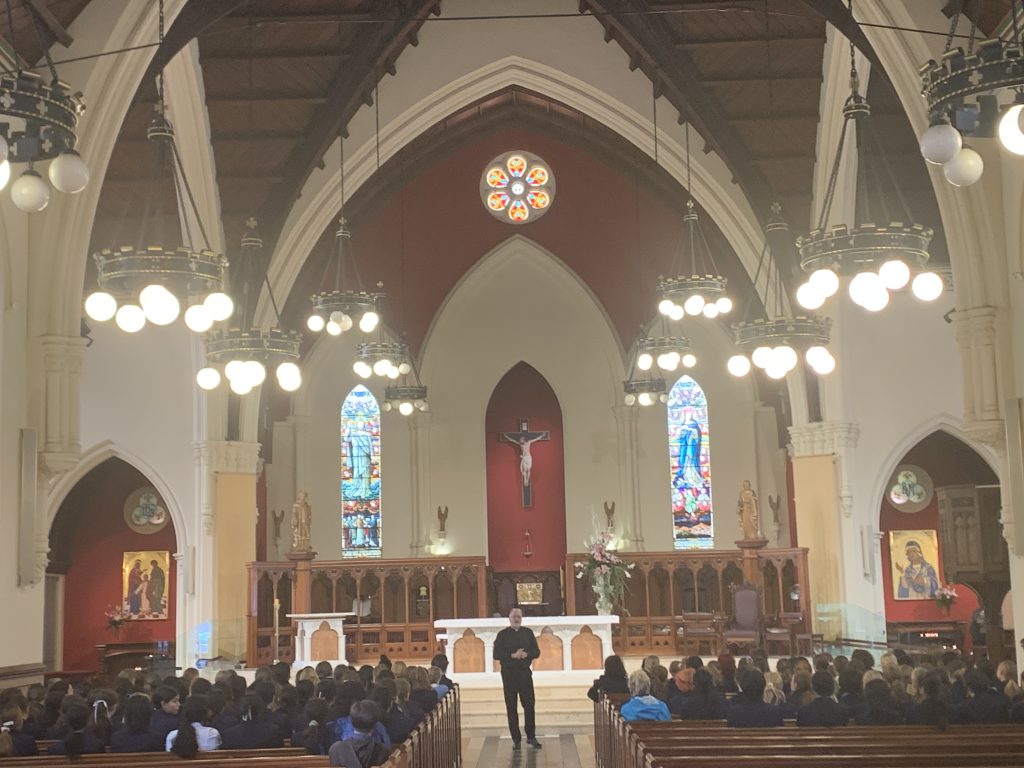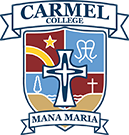From Week 10 of last term, all Year 12 students began to learn about world religions with a focus on Islam, Hinduism, Judaism and Buddhism. Last Monday we visited an Islamic mosque, Hindu mandir, Jewish synagogue and Catholic Cathedral accompanied by our priest, Father Mark Napa.
Before we could enter the Islamic mosque, we had to wear a head scarf and tights in respect of their religion. The structure of the mosque was quite different from a Catholic Church or Cathedral as there were several taps to wash yourself before prayer and no imagery on the walls. Inside, we learnt about the basics of Islamic practice which included the five pillars of Islam and their fundamental beliefs.
Next, we travelled to a Hindu mandir. This sacred space had several statues of deities and areas where you could place your offerings. There was an emphasis on each person being divine and life being a continuum as they believe in reincarnation. We were also told that around 80 festivals are held yearly in this particular mandir, including a large feast every Tuesday that can feed up to 1000 people. As part of their tradition, we were each offered a banana before leaving the mandir.
We then visited the Jewish synagogue. Their handwritten Torah scroll was safely kept within the ark at the head of the synagogue. The Torah is usually only taken out once a week to be read from, but we were fortunate enough to see it at the end of our visit. One of their main beliefs is that there is only one God and it is this God that rewards good deeds and punishes evil.
Finally, we visited St. Patrick’s Cathedral where we began to recognise some of the similarities and differences between Christianity and other religions. This included Christianity and Hinduism using imagery to support their respective faiths while Islam avoids it.
We feel blessed to be able to participate in this insightful trip and thank everyone who helped coordinate it. We especially thank those who taught us about their faith with devotion and willingness.
